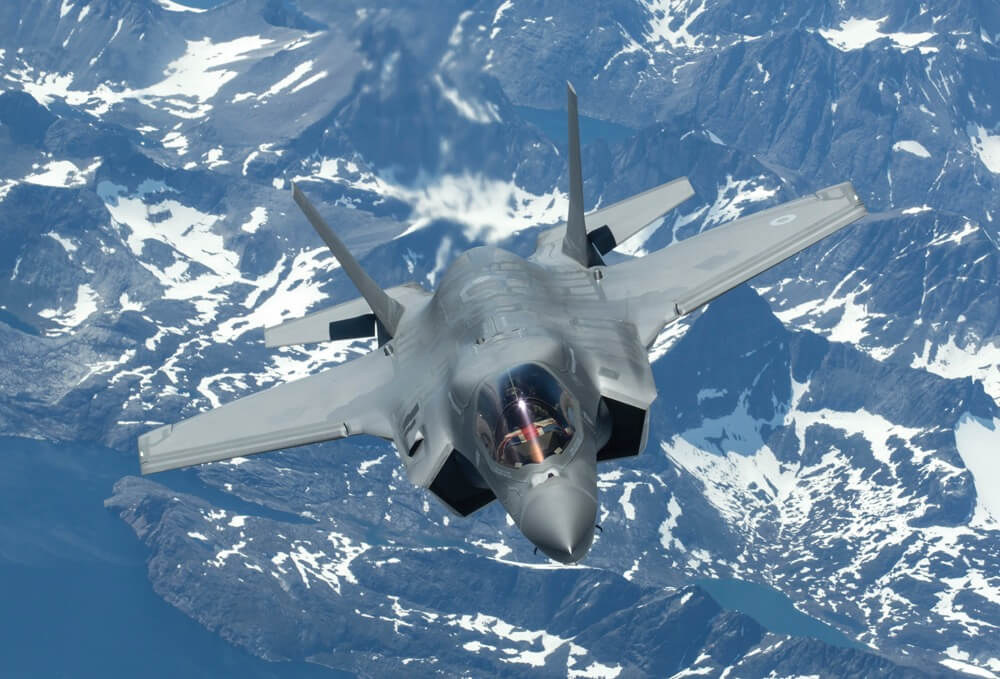F-35, refugees, energy: this is what Germany will do

Not just F-35. All the moves of Germany related to the Russia-Ukraine war. Pierluigi Mennitti's point from Berlin
The news of the day in Germany linked to the invasion of Ukraine by Russia comes from the armaments front. According to the Dpa news agency, the German government plans to purchase Lockheed Martin's 35 Joint Strike Fighter-F35s to replace aircraft in the Tornado fleet, introduced more than 40 years ago, as part of a billion-dollar modernization program. aviation.
F-35, WHAT GERMANY WILL DO
The F-35 is considered the most modern fighter aircraft in the world, writes the Dpa , and is purchased for Germany's nuclear sharing, a NATO deterrent concept in which allies have access to US nuclear bombs. Due to the special shape and outer skin, the machine is difficult for enemy radars to detect, the agency note adds. According to a report by The Pioneer portal, the government budget for the purchase of the F-35s would amount to 15 billion euros.
DOSSIER F-35
Also according to the Dpa , the project for the purchase of 15 new Eurofighters remains standing, which will be used in the tasks performed so far by the old Tornadoes, for electronic air combat, interrupting, suppressing and attacking enemy air defense positions.
CHAPTER REFUGEES FOR GERMANY
Meanwhile, more than 120,000 Ukrainian refugees have been welcomed to Germany so far, most of them arriving via Berlin, the city that has become a sort of western migration outpost. With trains and buses departing directly from Lviv, or from the first Polish hubs. The solidarity chain has been set in motion since the first hours of the war and is now fully staffed. The centers set up during the Syrian crisis of 2015/2016 are reopened, while temporary first reception facilities have been set up in the old disused or underused airports such as the Berliners Tegel and Schönefeld. While Berlin is geographically destined to absorb the first impact, the other Länder are ready to welcome the Ukrainians who will be sorted.
FORECASTS ON REFUGEES
The flow of refugees is expected to increase in the coming days, when a qualitative leap is expected. Those who have arrived so far are the migrants of the first moment, those who have still had time to organize their escape with some preparation and who have suffered less from the shock of the bombing. From now on, those who arrive will carry with them more the signs of war and hardship and will need material and even psychological assistance. Schools are also preparing to welcome schoolchildren who, where possible, will be organized in separate classes with Ukrainian or Russian language teachers.
THE ENERGY QUESTION
The political debate, on the other hand, still focuses on the energy issue. In an interview with the Sunday edition of the Frankfurter Allgemeine Zeitung , the Minister of Economy and Climate Robert Habeck took stock of the process of uncoupling from Russian energy dependence. A slow process, which can be accelerated on coal but encounters serious problems with gas. The minister assured that by the autumn Germany will be able to completely renounce Russian coal imports: "Every day that passes we say goodbye to a part of Russian coal," said Habeck, but the problems on gas remain insoluble. at least in the short to medium term. There is discussion about how geographically alternative sources, such as Algeria or an increase in the flow of gas from Norway, can help to replace that coming from Moscow, but Habeck urged not to have too many illusions: "When it comes to gas, things they are more complicated because Germany does not have its own liquefied gas import capacity ”.
LNG DOSSIER
On the LNG front, Chancellor Olaf Scholz announced last week the decision to speed up the construction of two regasification plants in the ports of Brunsbüttel and Wilhelmshaven, on the North Sea. An issue that had been dragging on for some time, with the two ports competing for a regasifier and a political will that was not exactly determined on the issue. The regasifier hypothesis was launched more as a bargaining chip with the US for Washington's go-ahead to Nord Stream 2. Now it becomes a piece of the remodeling of the German energy supply, even if the construction of the two terminals will take time.
THE POLITICAL SUBBUGHS IN GERMANY
Pressure is now coming from the Christian Democratic opposition. CDU leader Friedrich Merz has asked the government to give up Russian gas transported through Nord Stream 1, while party foreign policy expert Norbert Röttgen has more strongly backed the call for an immediate embargo of Russian energy sources: it will cost us a lot of money, but it's the only way to really affect Moscow's economy and force Putin to stop the offensive. Habeck, however, once again declined the hypothesis: with an immediate import ban, we will be forced to face shortages of supplies for next winter, he told Faz, with a series of chain consequences that are difficult to manage such as economic crises. , high inflation and hundreds of thousands of people who could lose their jobs. The energy crisis would produce a social crisis. The main way, concluded the minister, remains that of speeding up the transition and speeding up the transition to renewables.
MILITARY CENTRAL CHAPTER
The possibility of extending the activity of the three nuclear power plants which, according to the plans of the energy transition, should retire at the end of the year, decreeing the official exit of Germany from atomic energy, and the opportunity to postpone also the coal spill, which the new government wanted to anticipate by the end of this decade.
This is a machine translation from Italian language of a post published on Start Magazine at the URL https://www.startmag.it/mondo/germania-guerra-russia-ucraina/ on Mon, 14 Mar 2022 09:33:38 +0000.
